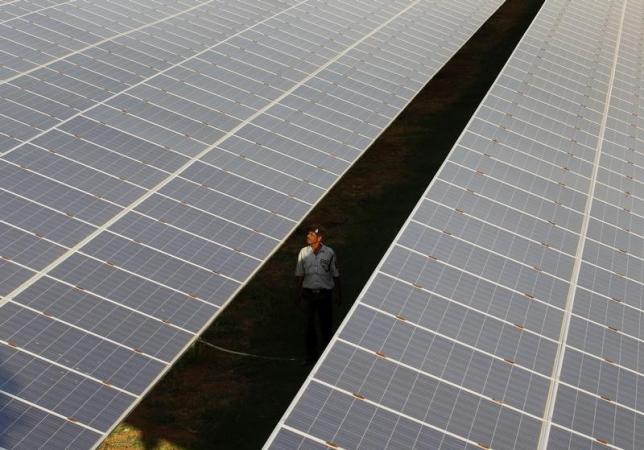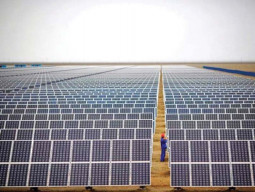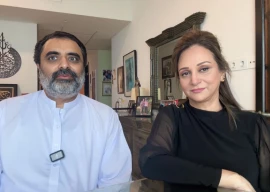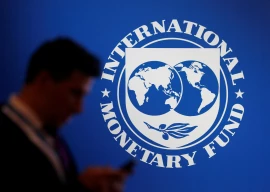
ISLAMABAD: The Cabinet Committee on Energy has announced some new decisions followed by press briefings by Power Division Minister Awais Leghari. Most of these pertain to renewable energy.
The main decision is to do away with the upfront tariff for renewable energy in favour of competitive bidding. Earlier, some confusion had persisted about competitive bidding as there was no word in black and white as to whether competitive bidding would actually take place and when. Now, Leghari has announced that competitive bidding will take place in the next two months. In parallel, the Sindh government has also announced competitive bidding for a 50MW solar power plant.
20,000 schools to be shifted to solar energy, says Shahbaz
Competitive bidding has been welcomed by all within and outside the country as it has delivered highly competitive prices of 3-5 cents as opposed to 10 cents-plus in the prior period. Today, solar photovoltaic energy is 100% cheaper than the cheapest fossil-based electricity.
The announcement of competitive bidding has been lamented by those vested interests which were expecting to earn extra profit by exploiting the upfront tariff and by lobbying with Nepra. These vested interests have in the past managed to extract 60-100% higher tariff than international prices. Hopefully, the competitive bidding will bring down prices, resulting in a lower cost of power generation, which would help both the people and the economy. It would be good for the solar power sector as it would expand under a competitive environment.
It may not be liked by one-off fly-by-night category of investors who may have been in for quick bucks. However, real investors would welcome it as they would be able to make long-term income under an expanded market with a lower margin but higher absolute profits.
Bring in external consultants
It is highly recommended that the government follow through on the announcement of the power minister and organise competitive bidding in an appropriate and credible manner. As local experience in competitive bidding is not there, it may be a good idea to involve some external consultants who may have the requisite experience.
Fortunately, there is a mature power policy and experience behind it, which would play a role in getting better results in the bidding. The outcome of the process would be the level of competition, volume of offers, and lower and competitive prices.
At this stage, we would warn against taking an extra dose of competition. Competitive bidding, in itself, is a major step towards competition, so it would be unwise to add or mix any other variability in it like take-and-pay provision.
It has to be take-or-pay contracts which have played a good role in assuring somewhat sceptical investors and managed to attract investments from independent power producers (IPPs).
Take-and-pay contracts may result in higher electricity tariff as the rate would be based on a capacity factor of 50% only as opposed to the usual 80% or even more. The proposed energy exchange will ultimately take care of this issue.
Energy exchange
It is a good idea, as Leghari has announced, to entrust the Securities and Exchange Commission of Pakistan (SECP) to study and possibly set up an electricity or energy exchange as it has the experience of a similar competitive process in the stock exchange. There is some similarity, but the electricity or energy exchange has its own peculiarities. It is more abstract than share prices. The possibilities of collusion and other usual vices are many.
A number of developing countries, like Turkey, the Philippines, Singapore and India, have organised such exchanges, but in a gradual, partial and considered manner, enabling them to learn through experience. A prerequisite for establishing such an exchange is to have many suppliers and many buyers.
Suggestions
Pakistan, at this stage, has only one buyer, which is the government/CPPA-G. Following are the steps that need to be taken:
1) Strengthening the third-party wheeling process.
2) Diluting the regulation by ending generation licensing, which will have a major market liberalising effect, allowing SMEs and captive power producers to enter the scene.
3) Modifying and introducing either take-and-pay contracts or limited-time (10-12-year power purchase agreements - PPAs) to enable a large number of suppliers in the market.
4) Restructuring and dividing distribution companies into smaller companies and privatising them.
5) Initially, existing PPA holders may be allowed to sell either 5-10% of their output in the electricity exchange or extra electricity production beyond agreed quantities as is being done in India currently.
The same exchange may also trade LPG, natural gas and oil. Several national and international oil and gas experts are of the view that gas output can be increased by bringing extra production to the competitive market.
Solar energy firms eye Pakistan as shortages persist
Finally, it is being widely felt that the government is showing unrealistic confidence due to a temporary glut in power supplies and is playing with many loose ideas and supply-inhibiting steps. Solar power has already suffered due to this. There is a temporary glut and this kind of glut has occurred in this country many a time and we had energy crisis also, the last of which appears to be tapering off.
It is also true that the government has succumbed to a high-priced coal power supply agreement, as is claimed by many observers at 40% higher prices, which needs to be corrected. It would be desirable to seek assistance of external consultants to systematise the proposed reforms enabling a stable transformation process to energy market and competition.
The writer is former member energy of the Planning Commission
Published in The Express Tribune, December 18th, 2017.
Like Business on Facebook, follow @TribuneBiz on Twitter to stay informed and join in the conversation.













































COMMENTS
Comments are moderated and generally will be posted if they are on-topic and not abusive.
For more information, please see our Comments FAQ